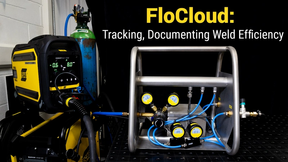AWO: Trends, Challenges and Opportunities
The tugboat, towboat, and barge industry is operationally and geographically diverse. From inland river barging on the Mississippi, Ohio, and Columbia rivers to ocean towing along the Atlantic, Pacific and Gulf Coasts, to shipdocking and bunkering in ports and harbors throughout the country, the American Waterways Operators (AWO) represents more than 350 member companies. One of AWO's challenges as a trade association is harnessing that diversity and focusing its strength on the common issues affecting movement of the nation's commerce.
While AWO works on a full portfolio of issues, three important and related trends are significantly impacting the industry's operations today. Chief among them is the industry-driven effort to develop safety standards. As a natural next step in a process started almost four years ago, AWO's membership very recently voted to require participation in AWO's Responsible Carrier Program (RCP) as a condition of association membership, thus fundamentally changing the character of the organization. AWO's members have now said that it is no longer enough to operate vessels and pay dues to belong to AWO. Members now must demonstrate to a third-party auditor that they are participating in a rigorous safety program that exceeds the existing regulatory floor and spans the breadth of their operations. This successful effort to strengthen self-regulation comes at a time when federal prosecutors are pursuing tougher penalties and states are initiating legislative responses to maritime incidents.
Industry Standards The Responsible Carrier Program is the preeminent example of an overall trend within the maritime industry to step up to the plate and take responsibility for setting its own operational standards to meet marine safety and environmental protection goals. The tug and barge industry started down this path in 1994, when AWO's Board of Directors adopted the Responsible Carrier Program as a voluntary code of practice for AWO member companies.
Since that time, AWO members have embraced a continuing willingness to take the next step on the road to selfregulation and industry standard-setting.
Last October, AWO's Board approved the design of a third-party audit for the Responsible Carrier Program. An AWO member Accreditation Board has just approved the first class of third-party auditors for the RCP, with the expectation of having the program on line and operational in the third quarter of this year. Last month, AWO's membership took its most significant step yet and voted overwhelmingly to amend the AWO Constitution and Bylaws to make a commitment to achieving full compliance with the Responsible Carrier Program a condition of membership in AWO. From now on, any company that joins AWO will sign a statement pledging its commitment to implementing the Responsible Carrier Program and to undergoing a third-party audit within two years. Existing AWO members have also committed to achieving full compliance and to undergoing an audit by January 2000.






